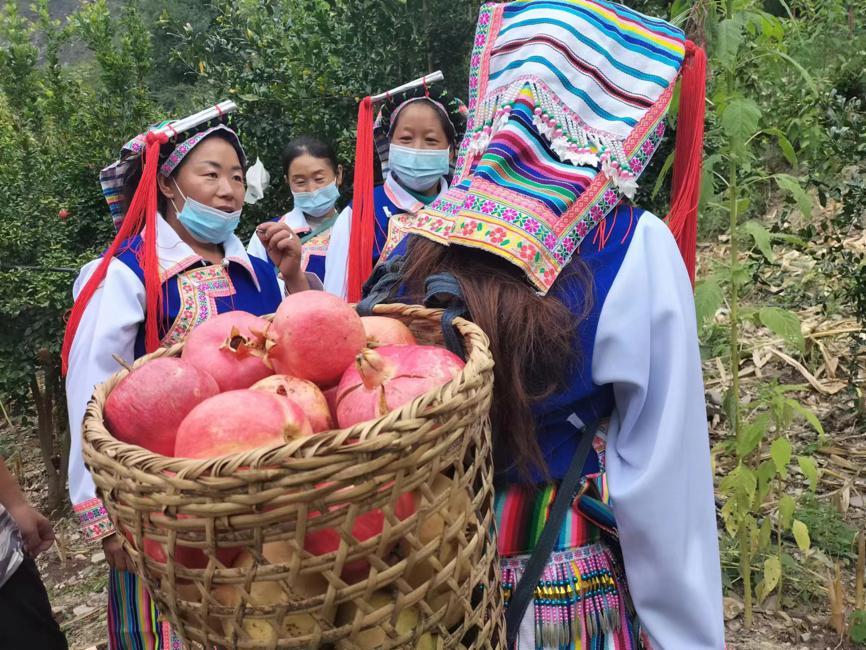Local focus gives village competitive advantage

Villagers collect Tunisian pomegranates in Sangthak village in Zayul county in the Tibet autonomous region. [Photo provided to chinadaily.com.cn]
The small village of Sangthak in the Tibet autonomous region has gravitated to a few key industries to take advantage of its local conditions and lift itself out of poverty.
In recent years, 30 households and 147 people of the village have got involved with pomegranate plantations, guesthouses and fungus plantations with the support of the local government.
Located in the lower reaches of the Nujiang River and bordering Yunnan province in the south, Sangthak is mostly populated by the Nu ethnic group.
Enriched with natural landscapes and ethnic culture, and conveniently located along national highway G219, it has become a bit of a tourism destination, and so some villagers have turned their hands to hospitality.
Zheng Na, Party secretary of Sangthak village, said more than 530,000 yuan ($73,000) was invested by the local government into a hot-spring hotel project in 2018.
"The hot-spring hotel business has six spas, and the local owner distributes a collective dividend of 40,000 yuan to the village every year," said Zheng.
Sonam Chozom, who runs a guesthouse in the village, said her property provides both accommodation and local cuisine for tourists.
"Last year, my family income generated from the guesthouse and restaurant exceeded 30,000 yuan," she said.
Enriched with plenty of sunshine and water resources, and with big temperature differences between day and night, the village is also ideal for planting Tunisian pomegranates.
Kundrub, a village official, said in order to make good use of land resources, 30 households from the village started planting Tunisian pomegranates in 2017 on 8.4 hectares of land. They harvested the fruit last year. The village has 9.3 hectares of land planted with pomegranates this year.
"Last year, thanks to the pomegranate plantation project, each household in the village received an average income of 3,000 yuan," Kundrub added.
The village produces pomegranates with very thin skin, making them more competitive in the market.
Sangthak's abundant forest resources also provide a source of income for the villagers.
With the arrival of the monsoon season every year, villagers go into the forest to collect matsutake mushrooms, which they sell to a cooperative in the village.
Tashi Dondrub, the operator of the cooperative in Sangthak, said the village is the first in Tibet to grow matsutake due to its unique geographical location.
"The price of newly produced matsutake is very good. Our matsutake is shipped to major cities such as Guangzhou and Shanghai," said Tashi Dondrub.
"The collection and trading of matsutake in our village provides more than 900,000 yuan of income for the villagers every year, and I really feel proud to see everyone's lives getting better and our hometown prospering quickly in recent years," he added.
Ma Chuanqiu, a village-based government worker in Sangthak, said that last year, the per capita disposable income of the village reached 16,325 yuan, an increase of 12.2 percent year-on-year.
"The village continues to develop the growth of the collective economy as the main goal in the village, and it has basically achieved a diversified development model characterized by family inns and hot-spring hotels."
